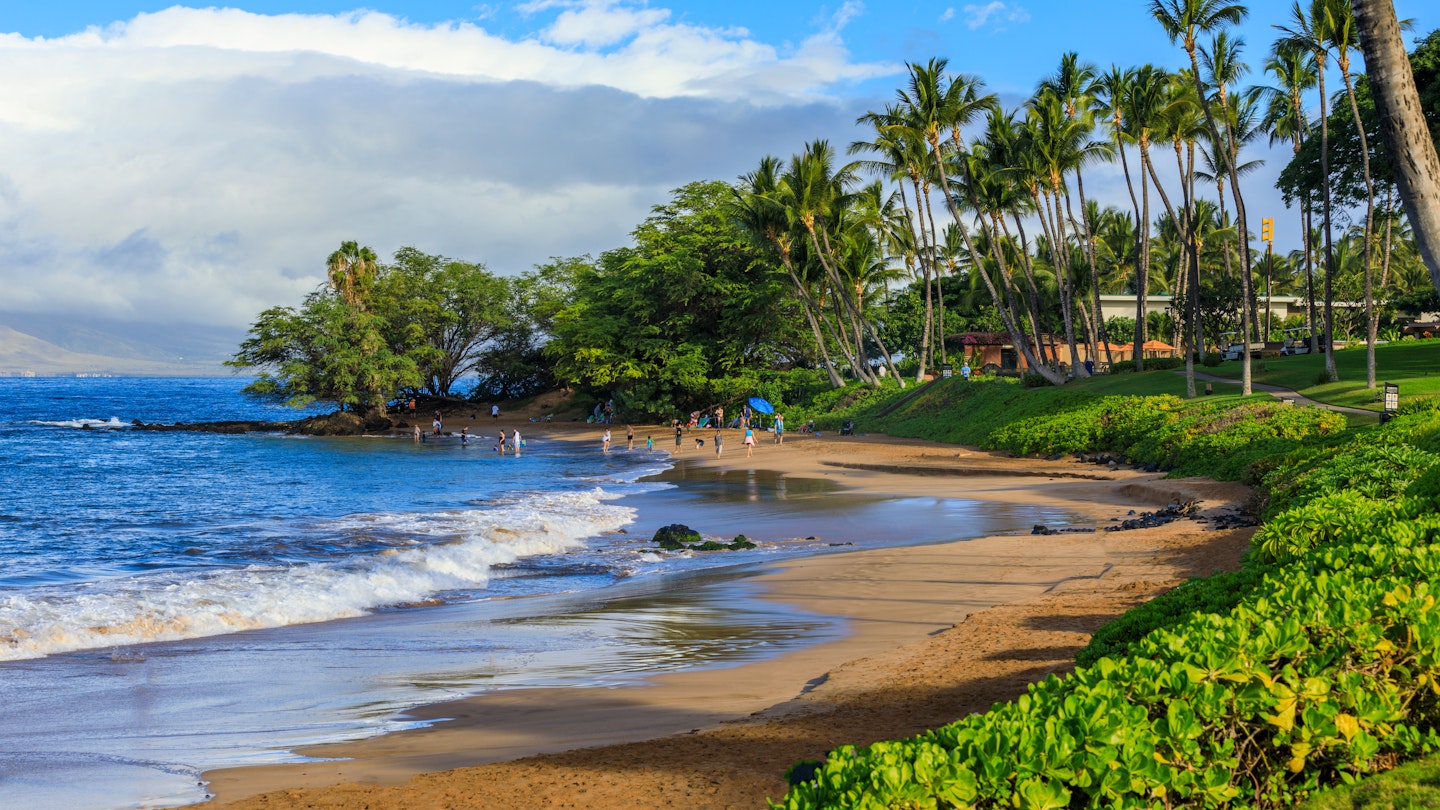This article has been adapted from a guide, highlighting important information for travelers visiting Maui.
The people of Maui are united by aloha ‘aina – a profound respect for the land – alongside a deep-rooted love for hospitality. However, in recent years, Maui’s hospitable culture has faced challenges due to an increase in tourism.
Maui’s communal lifestyle is unique compared to the more fast-paced lifestyle found on the US mainland. The local spirit of aloha, strong family bonds, and a tradition of generosity create an invisible thread of connection among the residents. Here, it’s common to engage in informal conversation, affectionately termed “talking story,” promoting a sense of community.
Sadly, the surge in tourism has tested Maui’s beautiful culture. In 2022, the island saw over three million visitors, who collectively spent approximately $5.8 billion. Unfortunately, a disturbing trend emerged where many visitors seemed unaware of their responsibilities while enjoying the island’s natural beauty. Concerns arose that tourists were neglecting the practice of aloha ʻaina, adversely affecting the fragile ecosystems of the area.
Furthermore, disrespect towards kamaʻaina (long-term residents of Hawaii) has also been a concern. Notably, many visitors were unfamiliar with the authentic values of Hawaiian traditions. With three million people on a small island, the actions of a few can have a substantial impact on the local community.
Consequently, some tourists mistakenly believe that financial contributions absolve them of social responsibility. In light of this, the Hawaii Tourism Authority (HTA) has implemented measures to promote authentic representations of Hawaiian culture and to encourage thoughtful engagement from visitors. As the local community continues to advocate for these necessary changes, raising awareness becomes all the more important.

Before You Go
Before you embark on your journey, consider reviewing the Ma‘ema‘e Toolkit, produced by the Hawaii Tourism Authority. This resource provides valuable insights into the geography and culture of the Hawaiian Islands, alongside tips for responsible travel. Additionally, engaging in volunteer opportunities can help you connect with Maui while giving back to the community.
Familiarizing yourself with the basics of ʻŌlelo Hawaiʻi (the Hawaiian language) can significantly enhance your travel experience. Don’t forget to practice the shaka gesture, a sign of greeting in Hawaii, which involves folding down the three middle fingers and extending the thumb and little finger while shaking your hand.
As you plan your visit to Maui, consider the following thoughtful travel suggestions, particularly relevant as the community continues to recover from recent challenges. It’s advisable to approach sensitive topics, especially regarding local tragedies, with care and compassion, understanding that many residents may be in a personal period of healing.
1. Learn About Maui’s History and Environment
Ensure that you go beyond surface-level knowledge: delve into the intriguing history of the Kingdom of Hawaii, the consequences of its overthrow, and the ongoing struggles surrounding land and water rights. Understanding this context helps foster respect and appreciation for the land and community.
2. Clean Your Shoes Before Arrival
To prevent introducing foreign seeds or insects, clean your shoes and luggage before arriving in Maui. This precaution is especially important for visitors coming from areas affected by invasive species, like the Big Island, impacted by the Rapid Ohia Death disease.

3. Support Local Businesses
Help bolster the Maui economy by shopping at local marketplaces. Find fresh produce and crafts at farmers markets and support mom-and-pop stores. Engaging with local artisans not only enriches your experience but also supports sustainable practices within the community.
4. Choose Locally Grown Food
When dining out, opt for locally-owned restaurants over international chains. Seek establishments that prioritize fresh, local produce and ask about their suppliers to promote sustainable eating practices.
5. Respect Service Staff and Tour Guides
Treat restaurant and hotel staff with courtesy and generosity. The high cost of living in Maui means that a kind tip can significantly impact service workers’ livelihoods. A little respect and appreciation go a long way.
6. Engage in Cultural Experiences
Participate in local activities or cultural events that enrich your understanding of Maui’s heritage. Be it farm tours, museum visits, or local performances, these experiences help cultivate a deeper connection with the island.
7. Volunteer Your Time
Giving back to the community through volunteering presents not only a chance to help but also to gain a richer understanding of Maui. Many organizations facilitate volunteer opportunities for visiting guests, thereby encouraging meaningful interactions.

8. Stay Aware of Your Surroundings
Mind your surroundings and be considerate of locals, especially on popular routes like the Road to Hana. If a local driver is behind you, pull over to let them pass. Additionally, using recyclable materials and minimizing waste reinforces respect for the natural environment.
When enjoying outdoor activities, always stay on outlined trails and prioritize signage. For instance, at Haleakalā National Park, utilize paved parking lots and avoid disrupting the ecosystem by staying within designated areas.
9. Consider Public Transportation
If you’re visiting Maui for a brief period, contemplate using public transportation instead of renting a car. The Maui Bus services key areas, offering an eco-friendly alternative that will help ease road congestion while reducing your carbon footprint.
For longer visits, consider opting for smaller vehicles as they consume less gas, making it easier to navigate through Maui’s narrow roads.
10. Acknowledge Signage and Private Property
Respect all signs located at sacred sites, either indicating discouraged entry or outright prohibition. In many areas, it’s crucial to observe markers that signify cultural or historical significance. Providing this respect honors the rich heritage of Maui.
While Maui’s resorts cannot restrict access to its stunning beaches, it is important to adhere to beach access signs and avoid private properties unless permission is granted. A little mindfulness goes a long way in preserving the integrity of this beautiful island.





